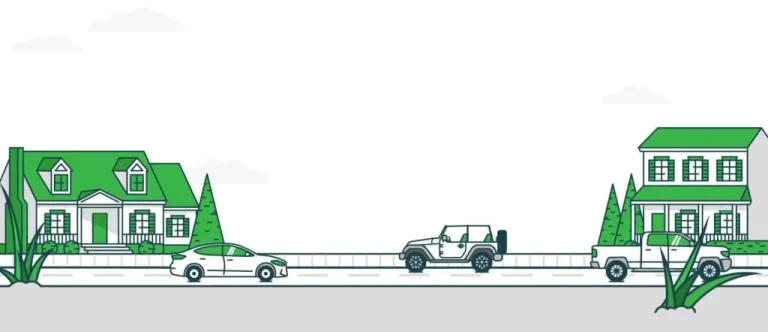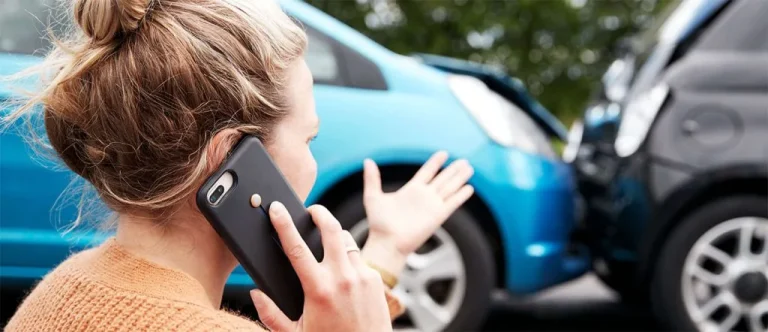While the Old Dominion isn’t a no-fault state, drivers should still be familiar with the ins and outs of auto insurance laws in their state. Since Virginia doesn’t have a no-fault statute, drivers aren’t required to carry no-fault coverage like a first-party medical benefit (FPMB). However, they may opt for one on their full coverage policies anyway. The laws in Virginia only require drivers to carry minimum limits of liability and uninsured motorist coverages (UM).
Let’s check out why Virginia isn’t a no-fault state, how drivers navigate claims and accidents in the Old Dominion, and what coverages drivers must always carry on their Virginia auto insurance policies.
Is Virginia a No-Fault State?
Drivers with car insurance in Virginia aren’t required to have no-fault insurance since the Old Dominion isn’t a no-fault state. No-fault states will usually mandate drivers to carry an FPMB on their car insurance policies to cover their medical expenses in the event of an accident.
States enact no-fault laws to make the claims process more efficient in states where drivers file a higher-than-average number of claims. Typically, states with a high population or a high population of uninsured drivers will set no-fault laws into motion. In a tort state like Virginia, fault must be assigned to at least one driver for the victim to begin to receive benefits from their insurance coverage. Drivers in tort states typically wait longer than those in no-fault states to receive their insurance benefits because the claim filing systems get backed up in tort states.
In a no-fault state, drivers will typically rely on themselves for coverage for their medical expenses incurred in an accident. On the other hand, in tort states, drivers rely on each other for liability coverage to cover the victim’s expenses in the event of an accident. Policyholders carry liability coverage for other drivers on the road to use should the policyholder cause an accident.
By law, drivers in the Old Dominion must have an auto insurance policy with at least $30,000 in bodily injury liability per person, $60,000 in bodily injury liability per accident, $20,000 in property damage liability per accident (30/60/20 liability coverage), $25,000 in uninsured or underinsured bodily injury coverage (UMBI/UIMBI) per person, $50,000 in UMBI/UIMBI per accident, and $25,000 in uninsured or underinsured property damage coverage (UMPD/UIMPD) per accident, or 25/50/20 UM/UIM coverage.
Those who lease or finance their vehicles may be legally obligated to have comprehensive and collision coverages.
If an at-fault driver in a tort state can’t pay for the expenses they owe the victim, whether they don’t have enough coverage or are driving uninsured, the victim may be able to sue the at-fault driver for pain and suffering. However, Virginia is a contributory negligence state, meaning unless the at-fault driver is entirely at fault for the accident, the victim can’t sue. So, if the at-fault driver and the victim split the fault 70/30, the victim can’t sue.
Is Virginia a No-Fault State for Car Accidents?
No, Virginia isn’t a no-fault state for car accidents, but instead, it is a tort state. Tort states require at least one driver to be considered at fault in every accident and often require drivers to carry liability coverage to cover the victim’s expenses in an accident the policyholder causes. Since the Old Dominion isn’t a no-fault state, drivers aren’t required to carry an FPMB. Still, they may opt for an additional one on their full coverage policies.
Although a full coverage policy can be more expensive than a minimum coverage one, the investment often goes a lot further, and drivers find they have adequate protection when needed. The average cost of a full coverage policy in Virginia is about $1,340 annually. Drivers must also calculate their deductible into their annual budget for car insurance. Typically, those with a higher deductible have a lower premium, and those with a higher premium have a lower deductible. Many of the top insurers in the Old Dominion offer policies far below the state average cost and provide policyholders with plenty of opportunities to stack discounts.
A full coverage policy in Virginia will likely include a higher liability limit than what’s legally required, a higher UM limit than what’s legally required, and additional coverage like personal injury protection (PIP), medical payments coverage (MedPay), comprehensive coverage, and collision coverage among others.
While a minimum coverage policy will protect Virginians from the consequences of driving uninsured in the state, it may not protect policyholders in many other scenarios. While it can be tempting to forgo coverage illegally in the name of savings, the premiums associated with a car insurance policy are often far less expensive than the penalties for breaking the law.
Does Virginia Have No-Fault Auto Insurance?
In Virginia, no-fault insurance is available to drivers who opt for a full coverage policy. Drivers with a minimum coverage policy will only have liability and UM coverages, which require a driver to be considered at fault.
Drivers who opt for a full coverage policy may tailor their policy to include a no-fault coverage like PIP, MedPay, or another FPMB. These coverages allow the policyholder to rely on themselves in an accident, as they can invoke their own insurance benefits to cover their medical expenses regardless of who’s at fault.
Typically, drivers who have previously had an SR-22 on file or are otherwise considered high-risk drivers will carry an FPMB due to a history of at-fault accidents. Since FPMBs can be invoked regardless of who’s at fault, such coverage can put high-risk drivers at ease, knowing they are covered in various accident scenarios.
Why Is Virginia an At-Fault State?
Since there isn’t a Virginia no-fault law, the state is an at-fault or tort state for auto accidents. This means that fault must be assigned in every accident, and drivers will default to each other’s liability coverage during an accident rather than one’s own coverage provided by a mandatory FPMB. States forgo no-fault laws for a number of reasons, primarily because the state isn’t heavily or densely populated or because there isn’t a higher-than-average number of uninsured drivers.
While Virginia is a heavily populated state, it has a lower-than-average population density and population of uninsured drivers. When states have high populations or population densities, there are naturally more drivers on the roads. With more drivers on the roads, there’s an increased likelihood of accidents for all drivers. Thus, with an increase in accidents comes an increase in claims and legal action, clogging both the claims and legal systems.
So, states with higher-than-average numbers in these categories adopt no-fault laws for drivers to have easier access to insurance benefits and to minimize the amount of legal action drivers may take with one another. Since Virginia only has a higher-than-average population but does not rank high in the other categories, the state operates on a tort basis instead of a no-fault system.
How To Get a Virginia Auto Insurance Quote
Whether you’re searching for the cheapest policy in the state or a policy with excellent coverage, the best way to find the right one for your needs is to get and compare quotes online. By getting and comparing quotes from several of the state’s top insurers, you can create your policy to meet your unique needs and see how far you can stretch your savings.
Lucky for you, we’re quoting experts here at Clovered. We even have a free quoting tool you can use to get quotes in just minutes. If you prefer to chat with a professional about your quote, you can speak with one of our licensed agents at 833-255-4117 or agent@clovered.com.
The editorial content on Clovered’s website is meant to be informational material and should not be considered legal advice.




